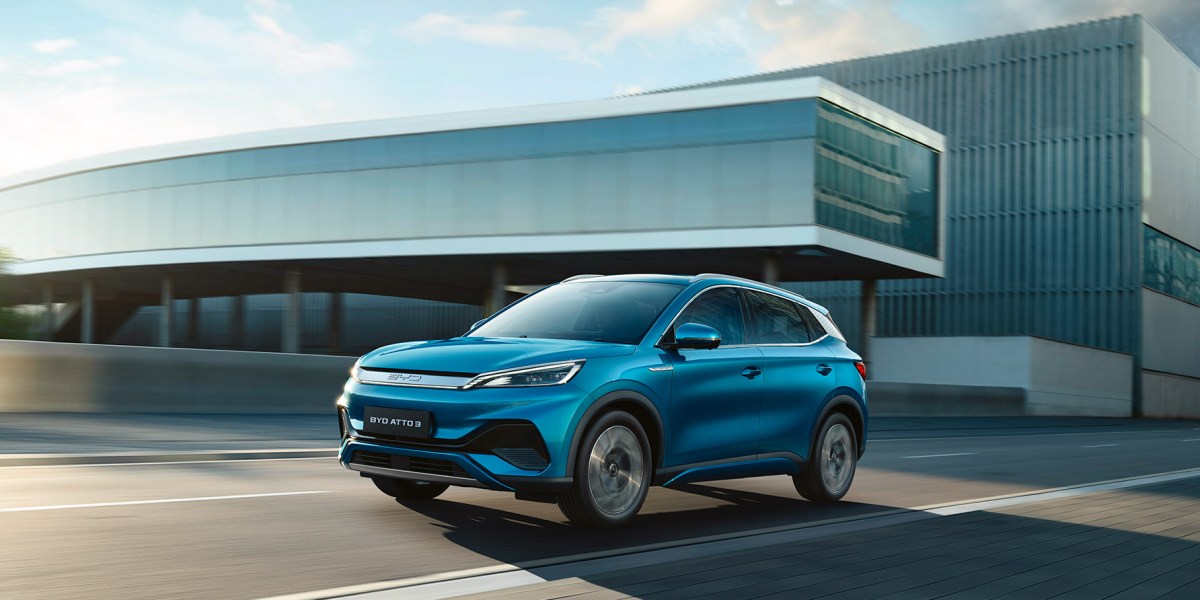Another key to its success is its tightly controlled in-house production line. BYD can source everything through its own subsidiaries, from batteries and motors to the majority of the components required to make its affordably priced EVs and plug-in hybrid cars, electric buses, and monorails. This approach doesn’t just allow it to manufacture its vehicles at a lower cost than its competitors; the tight control also lets it innovate across its supply chain, rapidly incorporating new features into production.
Key indicators:
- Industry: Electric vehicles
- Founded: 1995
- Headquarters: Shenzhen, China
- Notable fact: BYD sold 3,024,417 “new energy” vehicles, which includes battery-only vehicles and hybrids, in 2023. That’s a year-on-year increase of 62%.
Potential for impact
Although sales of EVs are increasing globally, the majority of those new sales are being made in China. To expand its international market, which accounted for just 8% of its total sales last year, BYD is rapidly building factories across the world and investing heavily in a massive fleet of car-carrying ships.
Over the past 18 months, the company has pushed into new markets, including Brazil, Australia, and Thailand, and announced that its new factory in Indonesia has produced its first batch of cars. It has begun work on its first European factory, in Hungary, and recently unveiled plans to invest $1 billion into a plant in Turkey, which will produce 150,000 electric and rechargeable hybrid cars a year.
Caveats
BYD’s biggest challenges remain low brand awareness outside China and regulatory scrutiny in the West, which is becoming increasingly hostile toward Chinese companies. The US recently raised its already hefty tariffs on Chinese EVs in a bid to discourage companies from importing them into the US. It is poised to do even more.




